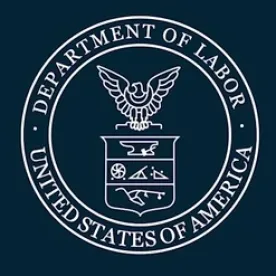Employers should be aware that the US Department of Labor (DOL) has ramped up its scrutiny of payroll practices by staffing companies, through comprehensive audits targeted on overtime classification. Of late, the DOL particularly appears hyper-focused on whether employers are properly relying upon two separate exemptions in order to avoid overtime obligations: (1) the computer employee exemption; and (2) the highly compensated employee exemption.
The Computer Employee Exemption
As an initial matter, many national and regional staffing companies play a vital role in providing critical staffing resources for the burgeoning IT industry. In most cases, individuals hired by staffing companies to perform various roles as IT consultants receive a substantial hourly rate for work performed.
If an individual qualifies for this exemption, staffing companies are not required to pay any overtime beyond forty (40) hours even though the individual’s compensation is tied to an hourly rate. (As opposed to other professional exemptions, these employees do not need to be paid on a salary basis to be exempt, as long as they receive at least $27.63 an hour.)
Employers should understand that while job titles alone are not dispositive, the computer employee exemption generally covers “[c]omputer systems analysts, computer programmers, software engineers or other similarly skilled workers in the computer field” who perform certain identified primary duties.1 To fit within this exemption, the computer employee’s primary job duty must consist of the following:
-
The application of systems analysis techniques and procedures, including consulting with users, to determine hardware, software or system functional specifications;
-
The design, development, documentation, analysis, creation, testing or modification of computer systems or programs, including prototypes, based on and related to user or system design specifications;
-
The design, documentation, testing, creation or modification of computer programs related to machine operating systems; or
-
A combination of the aforementioned duties, the performance of which requires the same level of skills.2
While the current DOL may apply a more narrow interpretation of this category, the Act and its implementing regulations expressly recognize that commonly, computer employees perform duties that simultaneously satisfy the executive and administrative employee exemptions as well.3 Importantly, the regulations recognize that employees need not exclusively perform covered job duties in order to qualify for an exemption.4 (“Concurrent performance of exempt and nonexempt work does not disqualify an employee from the executive exemption if the requirements of § 541.100 are otherwise met.”). Rather, the focus is on whether they perform enough exempt duties, in combination with non-exempt duties, such that they constitute the employees’ “primary” job duties.5 The Act’s regulations, in turn, characterize “primary duty” as being “the principal, main, major or most important duty that the employee performs.”6
Factors that the Department evaluates in determining an employee’s primary duty include, but are not limited to, “the relative importance of the exempt duties as compared with other types of duties; the amount of time spent performing exempt work; the employee's relative freedom from direct supervision; and the relationship between the employee's salary and the wages paid to other employees for the kind of nonexempt work performed by the employee.” In all cases, this determination is made based on all of the particular facts and circumstances of each case, looking primarily to “the character of the employee’s job as a whole.”
Staffing companies, specifically those focused on the IT industry, should take the opportunity to review the job titles and responsibilities for each of their clients’ positions. These pre-emptive measures will allow staffing companies to reply to DOL audits in a timely, comprehensive manner and, hopefully, avoid any form of fines or penalties.
The Highly Compensated Employee Exemption
While application of the computer employee exemption may require staffing companies to “double down” on their compliance obligations, use of the highly compensated employee exemption may prove more challenging in the context of other industries such as healthcare or life sciences. In order to qualify for the highly compensated employee exemption, an individual must earn $107,432.00 on an annualized basis in 2022.7 Employees earning at least $107,432 are exempt if they routinely perform any one or more of the exempt duties or responsibilities of an executive, administrative or professional employee. While that threshold is clear on its face, the analysis does not stop there.
Like their counterparts in the IT industry, individuals employed by staffing companies in other industries are also typically compensated on an hourly rate basis. Unlike IT consultants who are exempt in most cases under the computer employee exemption, even when paid hourly, there is no such exemption allowing hourly pay for consultants in other industries. That means, even if the employee is earning a significant hourly rate (annualizing to well over six figures, in amounts that would otherwise fall under the highly compensated threshold), they may still ultimately be deemed non-exempt.
As an overview, the FLSA and its implementing regulations require that employees are paid on a salary basis, in which the employee “regularly receives each pay period on a weekly, or less frequent basis, a predetermined amount constituting all or part of the employee’s compensation, which amount is not subject to reduction because of variations in the quality or quantity of the work performed.”8 Other provisions of the Act’s implementing regulations signal that the focus for evaluating compliance is on the degree to which the employee and the employer have a mutual expectation of regular and consistent work, both in terms of quantity and quality.9 (recognizing exemptions for employees who are compensated on hourly, daily, or shift basis). Furthermore, Congress has modified these exemptions over time to recognize covered compensation arrangements other than typical salary payments is further proof that the applicable standard is not so black and white.
For example, as initially enacted, the Act did not recognize a standalone exemption for computer-related employees. Then, in 1996, the United States Congress directed the Secretary of Labor to issue regulations creating the computer-employee exemption, apparently recognizing the market and employment realities of such occupations and the compensation arrangements that exist.10 At that time, Congress further directed the Secretary of Labor to apply the exemption to employees in computer-related positions if they were paid an hourly wage that was at least six-and-a-half times the basic federal minimum wage.11 Given that the Act recognizes as being permissible these various compensation arrangements other than a strict salary in the conventional sense, it follows that the exemptions described above are still satisfied where the employee receives what is, in effect, a salary, despite lacking the typical label.
The current DOL is testing these boundaries, seeking volumes of information in expedited audits on how, when and whether such consultants – many of whom earn well in excess of $125,000 – receive what amounts to a typical salary. Staffing companies would be wise to pay special attention to their compensation arrangements, which will surely come under scrutiny in the near future.
FOOTNOTES
1 See 29 C.F.R. § 541.400.
2 See 29 C.F.R. § 541.400(b).
3 See 29 C.F.R. § 541.402.
4 See 29 C.F.R. § 541.106(a).
5 See 29 C.F.R. § 541.700.
6 See 29 C.F.R. § 541.700(a).
7 See 29 C.F.R. § 541.601(a)(1).
8 See 29 C.F.R. § 541.602(a).
9 See 29 C.F.R. § 541.604(b)
10 See Small Business Job Protections Act of 1996, P.L. 104-188 (H.R. 3448).
11 See id.




 />i
/>i

